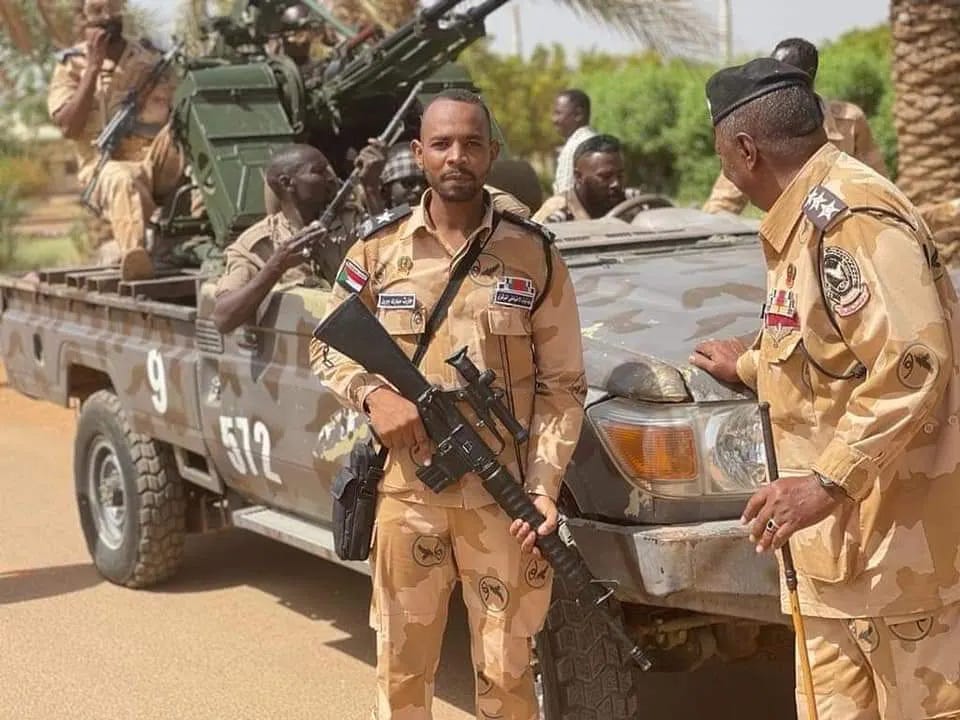Sudan’s football success casts light on an overlooked war
Sudan’s recent football success offers us an opportunity to pay attention to a civil war that has largely been overlooked amid other global conflicts.
Welcome to Sports Politika, a media venture founded by investigative journalist and researcher Karim Zidan that strives to help you understand how sports and politics shape the world around us. Our mission is to offer an independent platform for accessible journalism that raises awareness and empowers understanding.
If you share this vision, please consider supporting us by joining our community and becoming a paid subscriber.
Author note: This article includes descriptions of sexual violence.
On Oct. 15, 2024, Sudan earned one of its biggest football victories in a decade when it defeated former African champions Ghana in qualification for the 2025 African Cup of Nations (AFCON).
Sudan’s 2-0 victory over the Black Stars was impressive not only because the team was ranked 50 places below Ghana and now stands just one point from tournament qualification with two matches remaining, but also because Sudan had to play their home match in neutral Libya due to an ongoing civil war—one that has displaced millions and created one of the world’s most severe humanitarian crises.
For the players, it was an opportunity to bring a moment of fleeting joy to a country that has been in a state of chaos for 18 months. Sudan has only appeared at AFCON once since 2013 so qualifying for the 2025 edition in Morocco would be a remarkable feat, given the circumstances.
"With the things that are going on in Sudan right now, the civil war, we're playing a much bigger game," forward Abobaker Eisa told the BBC after the match. "People are in the streets to watch the games, and this is giving them a lot of joy amongst the chaos that's been going on. It makes them feel proud.
"Obviously we are hoping that our country gets better, and hopefully we could be a positive thing for our country as well."
Sudan’s football success is also an opportunity for us to pay attention to a civil war that has largely been overlooked amid other global conflicts, including Russia’s invasion of Ukraine and Israel’s war on Gaza and Lebanon.
The civil war began in April 2023, when tensions between the Sudanese military (SAF), under army chief Abdel Fattah al-Burhan, and the Rapid Support Forces (RSF) paramilitary group, led by his former deputy chief Mohamed Hamdan “Hemedti” Dagalo, plunged the country into a state of all of war. Urban centres such as the capital Khartoum were transformed into battlefields, destroying critical infrastructure and creating the world’s largest displacement crisis.
Over the course of 18 months of war, tens of thousands of civilians have been killed—figures vary widely from 20,000 to 150,000—while more than 13 million have been displaced, including at least 2.5 million who fled to neighbouring countries. The civil war has also been marked by horrific atrocities such as sexual violence, torture, mutilation and ethnic cleansing. A cholera outbreak also killed hundreds more civilians over the past few months.
Much of the reported war crimes have been committed by the RSF, a fighting force that grew out of the Janjaweed militias used by the government in counter-insurgencies responsible for the genocide in the Darfur region. Human rights organizations have since documented the Janjaweed’s systemic killing of mostly non-Arab ethnic groups in Darfur, as well as their use of rape and sexual violence as a tool of genocide.
The RSF, which reportedly receives secret funding from the United Arab Emirates, appears to be using a similar strategy in the current civil war. Last month, the Sudanese human rights activists reported that women have been committing suicide in Sudan’s central Gezira state after being raped by RSF fighters. The targeting of women in the region came after reports that one of the RSF’s top commanders defected to the Sudanese army.
"The RSF started a revenge campaign in areas under the control of Abu Kayka. They looted, killed civilians who were resisting and raped women and little girls," Hala al-Karib, head of the Strategic Initiative for Women in the Horn of Africa (SIHA), told the BBC.
The rights group has documented at least six cases of suicide related to sexual violence, but believe the figure is likely far greater.
Despite the overwhelming crimes against humanity being committed in Sudan, the conflict has drawn almost no global attention. It is largely ignored by mainstream media, and barely registers as a topic of conversation on social media platforms. Meanwhile, governments have done little to ease the suffering or bring an end to the conflict.
As the war continues with no end in sight, Sudan is expected to play Niger in its penultimate qualifying game on Thursday, Nov. 14. If Sudan wins, it will secure its place at AFCON. And though football cannot end the war, raise the dead, or ease the agony of those who endure, it may just be able to offers a fleeting moment of joy in an otherwise vast ocean of despair.
Sports Politika is a media platform dedicated to the intersection of sports, power and politics. If you like what you see, upgrade to a paid subscription ( or gift a subscription if you already have your own). We would appreciate if you could also like the post and let us know what you think in the comment section below.



